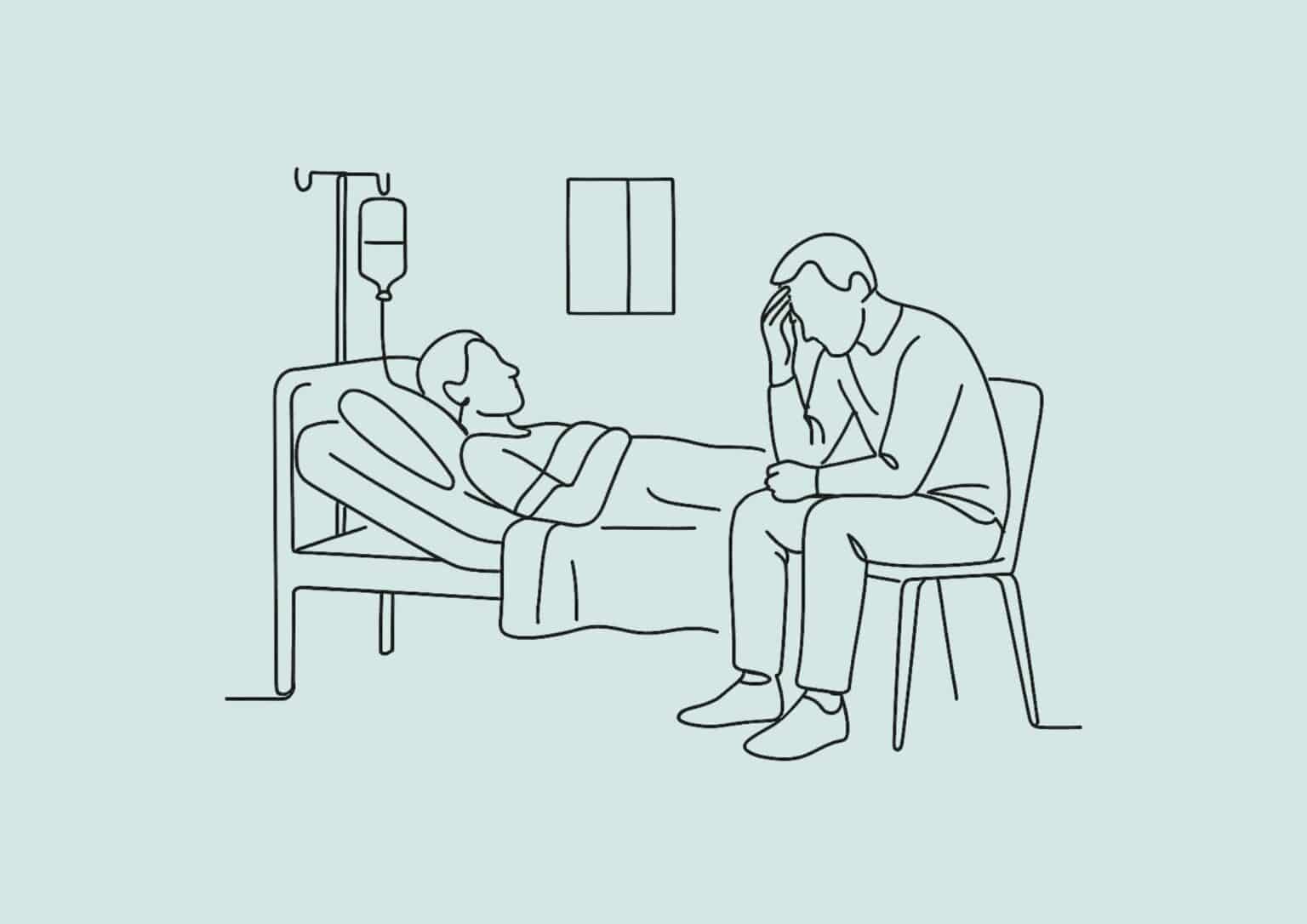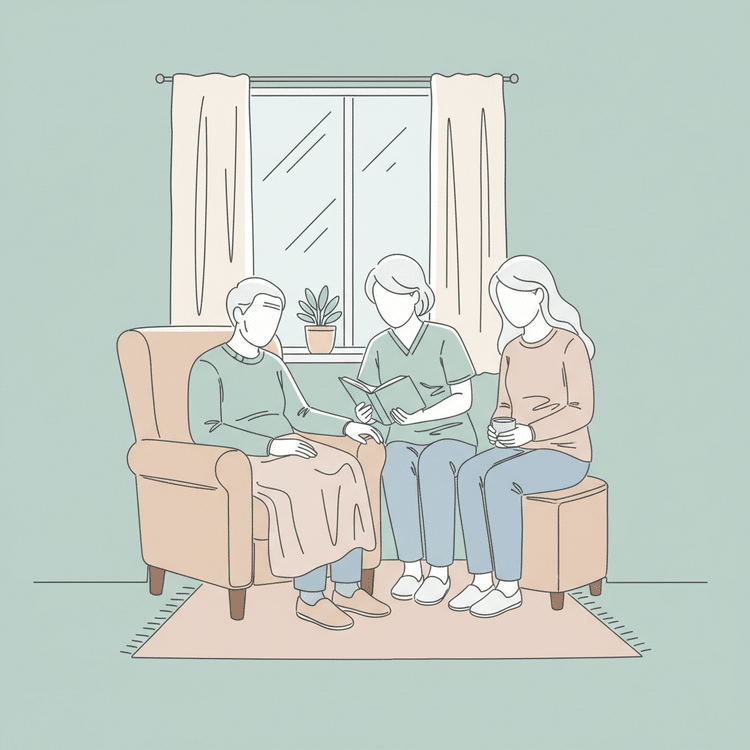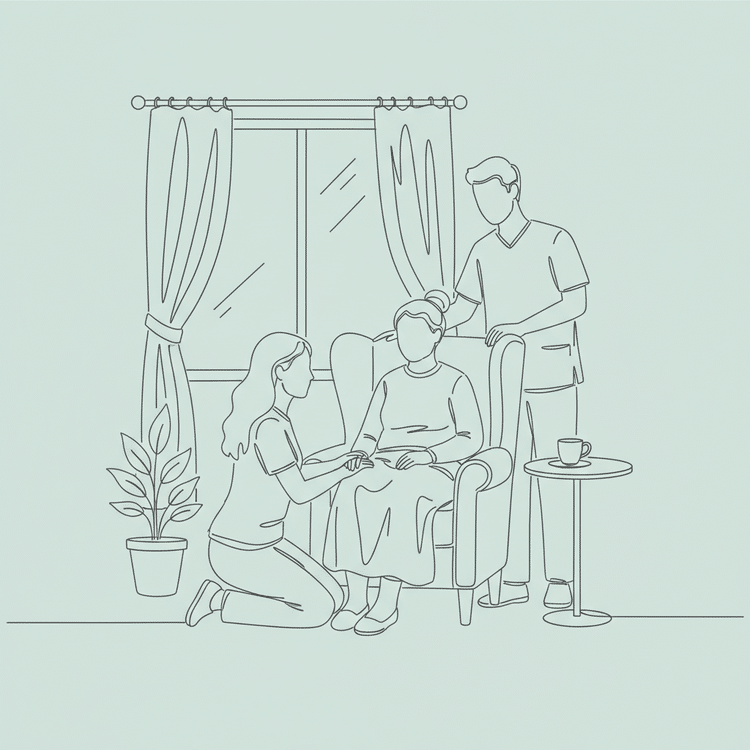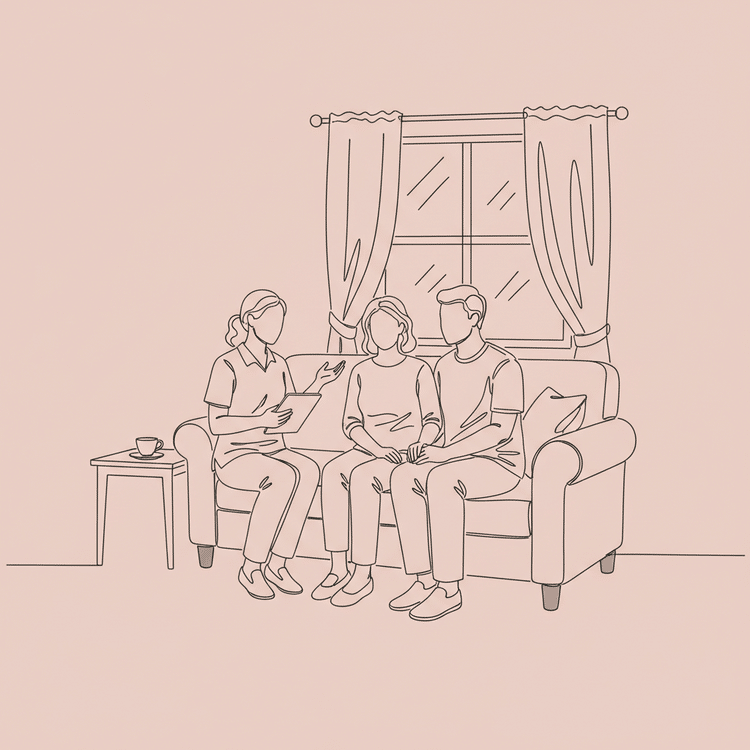Sarah sits quietly beside her father’s hospital bed, watching him breathe steadily in sleep. Yet inside, she feels waves of sadness, anger, and even guilt. “He’s still here,” she thinks, “so why do I feel like I’m already mourning him?” What Sarah is experiencing is called anticipatory grief—the complex emotions that arise before an actual loss happens.
At ViaQuest Hospice, we understand that anticipatory grief can feel overwhelming and confusing. These feelings are a natural response to facing the reality of losing someone you love. Recognizing and understanding anticipatory grief is an important step toward finding comfort and coping during this difficult time.
What is anticipatory grief?
Anticipatory grief happens before a death when you begin to experience many of the same emotions felt after loss, like sadness, anger, anxiety, guilt, or even relief. According to the National Institute on Aging, these feelings are normal and part of how we process the changes occurring while a loved one is still present.
You might feel deep sadness about the approaching loss, anger toward the illness or situation, or guilt for moments of relief or frustration. Anxiety about life after your loved one passes, fear for their pain or discomfort, and exhaustion from caregiving demands are all common experiences. These emotions often come in waves and vary day to day. Remember, every feeling you have is a sign of your love and connection.
Why does anticipatory grief happen?
Anticipatory grief allows you to begin adjusting emotionally while still sharing time with your loved one. Research from the American Psychological Association shows it helps people gradually face the reality of loss, manage relationships as they change, and prepare for the future.
This grief grows as you process the reality of loss while observing changes in your loved one’s health and personality. Daily routines and family roles may be shifting, and you’re naturally carrying new worries about what’s to come. It’s common to feel surprised or even guilty about grieving someone who is alive. These responses are valid and healthy.
Recognizing anticipatory grief symptoms
Anticipatory grief can affect emotions, thoughts, and even the body. You might notice persistent sadness or mood swings, difficulty concentrating, or feeling overwhelmed by caregiving tasks. Anxiety about the future, guilt over having complex feelings, and even relief when imagining suffering ending are all normal responses.
Your body might respond too. Changes in sleep or appetite, fatigue despite rest, muscle tension, headaches, or digestive problems can all accompany emotional grief. The Journal of Palliative Medicine emphasizes that seeing these symptoms as natural grief responses can empower you to seek helpful support, not blame yourself.
Healthy ways to cope with anticipatory grief
Coping doesn’t mean erasing grief—it means holding space for these feelings while caring for yourself and your loved one. Start by accepting your feelings without judgment because they’re all valid. Talking with trusted friends or family who can listen provides relief, and considering counseling can give you valuable coping tools.
Joining support groups connects you with others who understand your experience, while practicing mindfulness helps you stay present rather than feeling overwhelmed by the future. On a practical level, maintain gentle self-care routines and set realistic expectations for yourself—you don’t need to be strong all the time.
Don’t hesitate to ask for help with caregiving to prevent burnout. Creating special moments with your loved one deepens connection, and having conversations about wishes and needs can ease stress later. The goal is finding balance between honoring your grief and staying present for meaningful time together.
Supporting children through anticipatory grief
Children and teens grieve differently but feel the impact deeply. You might notice changes in behavior, sleep troubles, or new fears emerging. Help them by talking honestly in age-appropriate ways and encouraging questions while giving reassuring answers. Keeping routines as normal as possible provides stability, and allowing involvement in caregiving—if they wish—can help them feel included rather than excluded from this family experience.
Professional support becomes important if a child seems to be struggling significantly or if changes in behavior persist over time.
Finding moments of peace and connection
Anticipatory grief doesn’t stop you from finding joy or meaning. Sometimes, the awareness of limited time brings families closer. Try sharing stories and laughter together, looking at photos, or creating memory boxes. Talking about values, hopes, and love openly can deepen relationships, and enjoying simple pleasures like music or favorite foods creates positive experiences.
Many families share that treasured memories are born during hospice care, even amid grief. These moments don’t diminish your grief—they exist alongside it, creating a fuller, more complex experience of love and loss.
When to seek additional support
If grief feels overwhelming or begins to interfere with daily life, seeking professional help is a sign of strength. Consider reaching out if you’re struggling with daily functioning, having thoughts of self-harm, increasing substance use, finding that relationships are growing strained, or noticing that physical symptoms are worsening or persisting.
Professional counselors who specialize in grief can provide tools and perspectives that help you navigate this challenging time more effectively.
Compassionate support is here for you
ViaQuest Hospice’s bereavement team includes social workers and chaplains trained to walk alongside families during anticipatory grief and beyond. Support begins during care and continues for over a year after loss, honoring grief as a journey—not just a phase.
If anticipatory grief feels heavy or confusing, call us at 855.289.1722. Our compassionate team is ready to help with resources, counseling, and guidance tailored to your family’s specific needs.
You can also download our Complete Guide to Hospice Care for helpful information and subscribe to The Compassion Chronicle newsletter for ongoing support and stories from families facing similar journeys.
Grief before loss is love with nowhere to go yet. You don’t have to carry it alone—we’re here to help you find peace, connection, and hope along the way.





